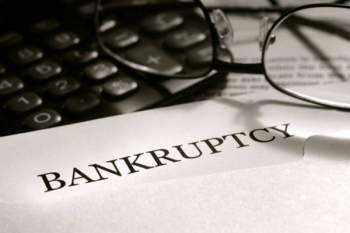
Georgia Bankruptcy

A Brief Introduction to Georgia State Bankruptcy Law
Before Filing for Bankruptcy
Every individual filing for personal Georgia bankruptcy needs to have completed some credit counseling. This is required so that individuals can explore all possible alternatives to bankruptcy, and no bankruptcy petition can be granted without a certificate of completion. For a list of Justice Department-approved counselors, visit this page.
Remember too that all businesses need legal representation to file for Georgia bankruptcy, but individuals don’t need to be lawyers or to hire a lawyer. However, most experts recommend a lawyer be hired or consulted. Individuals unable to afford Georgia bankruptcy lawyer fees should consult this page which lists pro bono programs that may be able to help you at low or no cost: website.
Filing for Bankruptcy
United States Bankruptcy Court for the Division of Georgia is divided into two sections. In the Northern District there are branches in Atlanta, Rome, Newman and Gainseville. In the Southern District courts are located in Augusta, Brunswick, Dublin, Savannah, Waycross, and Statesboro. Individuals may file at any of these locations. Some filings may also be done by mail.
No matter what your financial situation, all bankruptcy petitioners have to pay a fee in court depending on the type of bankruptcy they are filing for: $306 for Chapter 7, $1046 for Chapter 11, and $281 for Chapter 13. Some may be able to pay their fee on an installment plan. Federal bankruptcy forms are located here: and local forms can be found here for the Northern District and here for the Southern District. Learn more about the different bankruptcy chapters below, since you’ll need to know exactly which one will most benefit you before you file.
Corporate George Bankruptcy
Only when a business no longer appears to have a chance of paying off those debts that George bankruptcy is necessary or helpful. There are two kinds to know about:
• Chapter 7 Bankruptcy: This is the most drastic of corporate Georgia bankruptcy options, and only those businesses that do not believe that they can ever become profitable should pursue it. It essentially curtails a business’s operations since it requires the court’s seizure of most assets, which are then liquidated by the court with any proceeds raised used to provide payment for all the business’s creditors.
• Chapter 11 Bankruptcy: This Georgia bankruptcy strategy is available for businesses that realize that they are not capable of keeping up with their debt payments but that still don’t believe that their profits won’t one day return. It pauses debt repayment and stops all assets from being repossessed while the leaders work with the court on devising a suitable debt repayment plan.
Personal Georgia Bankruptcy
If you have concluded that your debt is insurmountable, then one of these types of Georgia personal bankruptcy may be of service:
• Chapter 7 Bankruptcy: Chapter 7 is generally considered the most desirable type of personal George bankruptcy, but this depends on the individual and their circumstance. As with its corporate counterpart, it requires the court to seize all assets and liquidate them to pay creditors. This is generally a successful strategy for those with few assets but high debt from things like credit cards. Only certain individuals are eligible for Chapter 7 bankruptcy, mostly persons below the median Georgia income or persons who meet other income requirements.
• Chapter 13 Bankruptcy: This George bankruptcy option is most usually pursued by individuals with higher incomes than those filing for Chapter 7 bankruptcy, but with large amounts of debt regardless. Their income is then used to pay back creditors in a structured, court-supervised three-to-five year plan.
A Warning before Filing
Before you go to your nearest George branch of the U.S. Bankruptcy Court and file for bankruptcy, before even you consult with a Georgia bankruptcy attorney, you should realize that most tax debt cannot be escaped from using bankruptcy. Some income tax debt is dischargeable through bankruptcy, but most others are not. Contact a Georgia bankruptcy lawyer to know more about what the best option may be to deal with your tax debt.



















